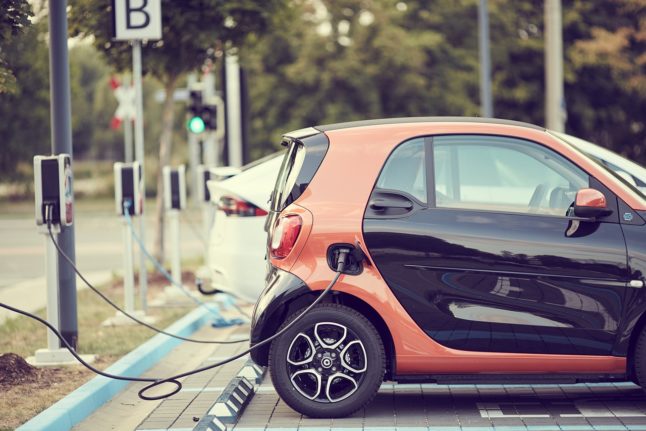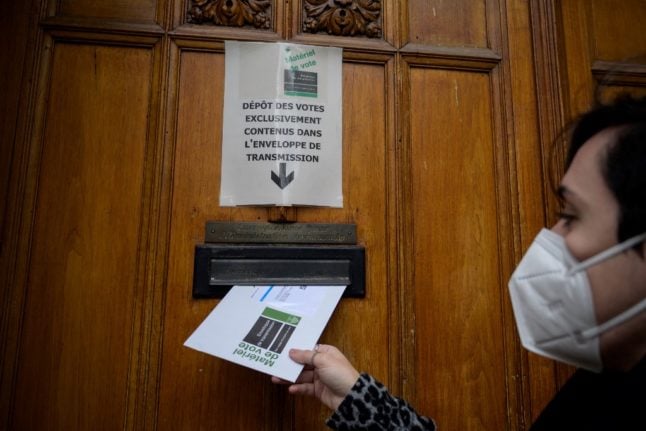Switzerland has a new president
Viola Amherd, Switzerland’s current Defence Minister, will become the new president on January 1st and remain in this position until December 31st.
Unlike most countries, there is nothing surprising or dramatic about the choice of presidents in Switzerland: each of the seven members of the Federal Council gets a shot at a rotating one-year presidency. And if they stay on the Council for more than seven years, they can become president more than once.
Also unlike other countries, the Swiss president has virtually no power. Other than representing Switzerland abroad, “he or she chairs the Federal Council meetings and mediates in the case of disputes,” according to the official government site.
In urgent situations, the president can order precautionary measures. In the unlikely event that the Federal Council is unable to hold either an ordinary or an extraordinary meeting, the president may take a unilateral decision” — the latter being the only bit of “power” the president can wield.

READ MORE: Why does Switzerland’s president only serve one year?
Prices for some essential services will increase
Your monthly health premiums will go up by 8.7 percent on average.
However, hikes will be even more significant in some cantons, where premiums will exceed the national average — for instance, in Zug (10.2 percent), Nidwalden and Thurgau (9.5 percent), Vaud (9.9); Geneva (9.1); and Neuchâtel (9.1).
Electricity tariffs will rise by 18 percent.
Locally, tariffs will be higher in some cantons and communities.
Zurich residents, for instance, can expect a 24.5-percent increase, in Geneva rates will go by 28.6 percent, and in Vaud, which has many electricity suppliers, hikes will range from 32 to over 40 percent.
This government link shows by how much electricity prices will go up in your community.
Higher VAT tax to go into effect
Switzerland’s Value-Added Tax will rise from 7.7 to 8.1 percent.
This tax on consumption is an important source of revenue for the state, as it is used to finance the old-pension (AHV / AVS) scheme.
It is important to anyone working and planning to retire in Switzerland, as without a new influx of funds, the Swiss pension system could plunge into the red within a few years, because baby boomers are reaching retirement age and life expectancy is rising.
Higher out-of-pocket expenses for brand-name drugs
The patient’s co-payment portion will increase from 10 to 40 percent when purchasing a brand medication if a generic option is available.
For the generic medicine containing the same active ingredient, this co-payment will remain at 10 percent. .
The aim of this measure is to reduce soaring health costs.
Health insurance to pay for additional preventive treatments
Compulsory health insurance will cover new treatments, including preventive breast or ovarian ablations in individuals who have a high genetic risk of cancer.
Tele-monitoring of patients suffering from advanced chronic heart failure will also be refunded.
Swiss import duties to be abolished
Switzerland will abolish import duties on almost all industrial products.
According to the State Secretariat for Economic Affairs (SECO), “goods and services cost significantly more on average in Switzerland than in neighbouring countries.”
Part of the reason is “the variety of tariff and non-tariff trade barriers that have the effect of isolating the Swiss market, allowing companies to charge higher prices here than abroad,” SECO said.
“Removing tariffs will therefore strengthen Switzerland’s position as a business and industrial location,” and it will benefit consumers as well.
New motorway vignettes
The vignette is obligatory when traveling on the country’s highways for residents and tourists alike.
You have the whole month of January to either affix the 2024 sticker to your car’s windshield or purchase an electronic version.
If you don’t, and are caught on one of the country’s motorways without one, you will be slapped (though not literally) with a 200-franc fine.

End of tax breaks for electric vehicle owners
As an incentive for people to buy electric vehicles (EVs), which are more environmentally-friendly than conventional automobiles, the government had exempted these cars from the import tax since its introduction in 1997.
However, from January 1st, EVs will be subject to the same 4-percent import duty imposed on traditional fuel vehicles.
“The Federal Council takes the view that the exemption from duty as a incentive is no longer necessary, given the sharp rise in the share of e-vehicles in total car imports and the convergence of prices,” it said.
READ ALSO: Why electric car owners in Switzerland will have to pay tax in future



 Please whitelist us to continue reading.
Please whitelist us to continue reading.
Member comments